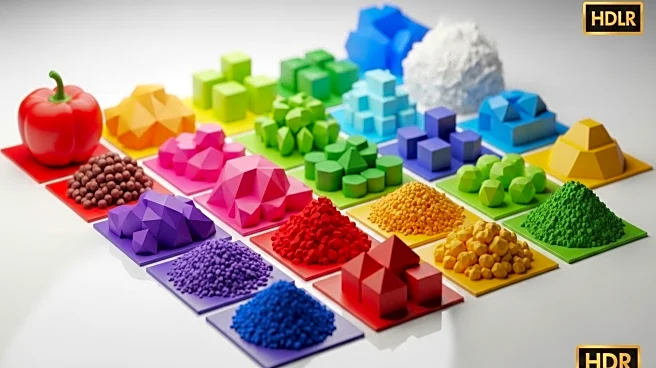What's Happening?
The synthetic food flavor market is poised for significant growth, with projections indicating a market valuation of USD 20 billion by 2033. This growth is driven by a compound annual growth rate of 5.5% from 2025 to 2033, reflecting the sector's role in meeting the increasing global demand for processed and convenience foods. The market is evolving due to several trends, including sustainability, consumer preference for authentic taste experiences, and globalization of food cultures. Manufacturers are focusing on eco-friendly production processes and developing flavors that bridge the gap between artificial and natural alternatives. Innovation in flavor delivery systems and transparency in food labeling are also shaping industry dynamics.
Why It's Important?
The growth of the synthetic food flavor market is significant for the food and beverage industry, as it supports product differentiation and market expansion. The industry's focus on sustainability and innovation aligns with consumer demands for eco-friendly and authentic products. This growth benefits manufacturers by providing opportunities for developing unique flavor profiles and enhancing product shelf life through advanced encapsulation technologies. The market's expansion also reflects broader changes in consumer behavior, with increased demand for exotic and novel flavors. As the industry adapts to these trends, it plays a crucial role in supporting food security and culinary diversity.
What's Next?
The synthetic food flavor market is expected to undergo transformation driven by regulatory changes, technological advancements, and shifting consumer preferences. Manufacturers will likely invest in cleaner production methods and enhanced traceability systems to meet stringent safety standards. The demand for flavors that align with wellness trends and dietary preferences will continue to grow, offering opportunities for personalized nutrition and customized flavor profiles. The integration of artificial intelligence and blockchain technologies is anticipated to revolutionize supply chain management and quality assurance processes. Global expansion into emerging markets will further drive growth, with emphasis on developing distribution networks in regions like Latin America, the Middle East, and Africa.
Beyond the Headlines
The synthetic food flavor industry faces environmental challenges that require innovative approaches to sustainable production. Traditional chemical synthesis processes pose environmental concerns, but the industry is responding with initiatives aimed at reducing impact while maintaining efficiency. Companies are investing in renewable energy sources and waste reduction technologies to minimize their environmental footprint. Green chemistry principles are being integrated into flavor synthesis methods, improving process efficiency and reducing hazardous chemical use. These sustainability efforts are crucial for the industry's long-term viability and its role in addressing climate change considerations.












